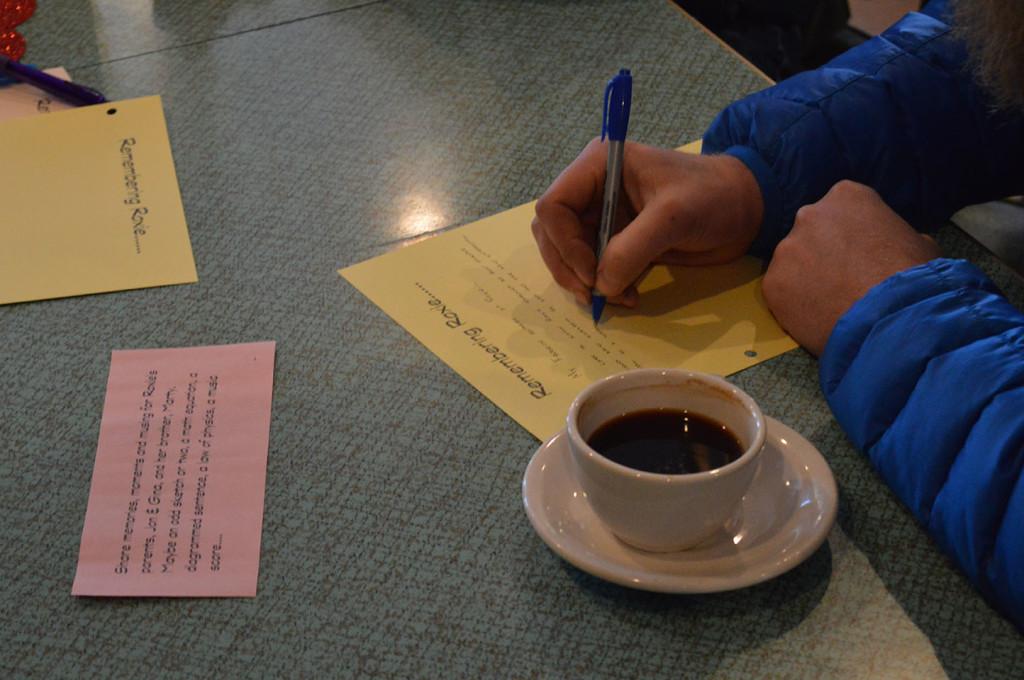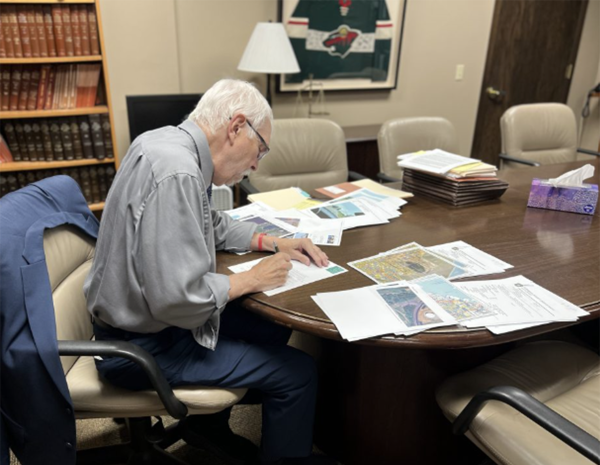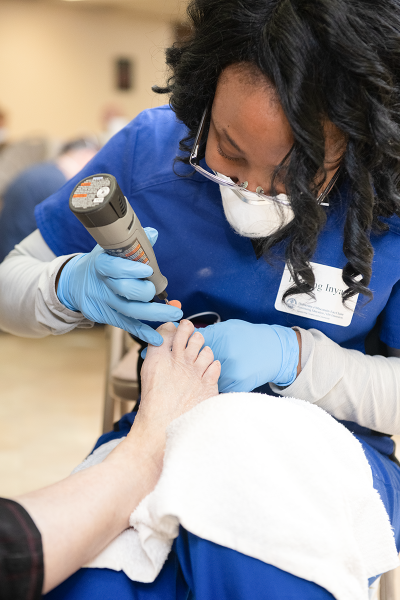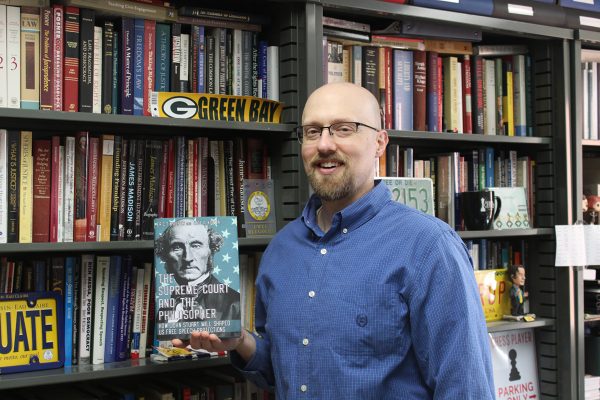Grieving family highlights holes in mental health system
Parents hope to start dialogue about depression and mental health care
Photo by Tyler Henderson
Muehlenkamp said depression, like many other mental health illnesses, is complex.
February 25, 2015
As campus and community members reflect on the death of a student, her parents hope to send a separate message.
On Feb. 9, 23-year-old Roxanne Accola took her own life. Her parents, Jonathan and Gina, are telling what they called an important and “troubling” story — their daughter’s struggles with depression and mental health care.
Gina Accola said it was hard for their family to find treatment for their daughter. Counseling services were only available after an extended wait, which could take as long as a week.
And for an illness with “unpredictable occurrences,” when ripples fade, all appears calm on the surface, she said.
“And I think it goes in waves,” Jonathan Accola said. “Things can be going good again, and so you say, ‘I don’t need to do anything more. It’s fine. It’s getting better.’”
Jonathan and Gina Accola say their daughter dealt with her struggles in an almost scientific way. But because of depression’s complex symptoms, results didn’t arrive as the Accola family expected.
Gina Accola said their family tried every option to maintain constant treatment.
Both Jonathan and Gina Accola said therapy and treatment were “in-and-out the door.”
“There needs to be more interaction between the two,” Jonathan Accola said, “and planning, because it’s not one or the other as far as that’s going to solve this.”
Jennifer Muehlenkamp, a clinical psychologist at UW-Eau Claire, said depression is diagnosed by qualifying symptoms; a patient may have eight symptoms, but only needs five to qualify for the diagnosis.
“You can have five, ten different people with the same diagnosis, but the way their disorder manifests itself is completely different from each other,” Muehlenkamp said. “But we have to recognize there’s so much individual variation.”
Muehlenkamp said depression is more common than people think. Similar to other mental health problems, depression exists on a spectrum — each person magnifies and wrestles problems differently.
“As a society, we are becoming less tolerant of any type of negative experience, negative emotion,” Muehlenkamp said. “And because we’re less tolerant, we’re not teaching people how to cope with them as effectively, and therefore we see people struggling with distress, anxiety, depression and so on.”
Despite this, Muehlenkamp sees a national shift in suicide prevention, and says those with “lived experiences” are explaining how to respond, prevent, and intervene. Above all else Muehlenkamp said, treatment works more often than not.
“I’d be a hypocrite if I didn’t acknowledge that there are a lot of barriers out there that can interfere with access to effective treatment,” Muehlenkamp said. “It’s not a perfect system by any means.”
Chris Vaudreuil, one of Roxanne Accola’s aunts, applauded the family’s efforts to address the situation.
“Don’t hide it. Talk about it,” Vaudreuil said. “If something positive comes from this … it will save more than one life.”










